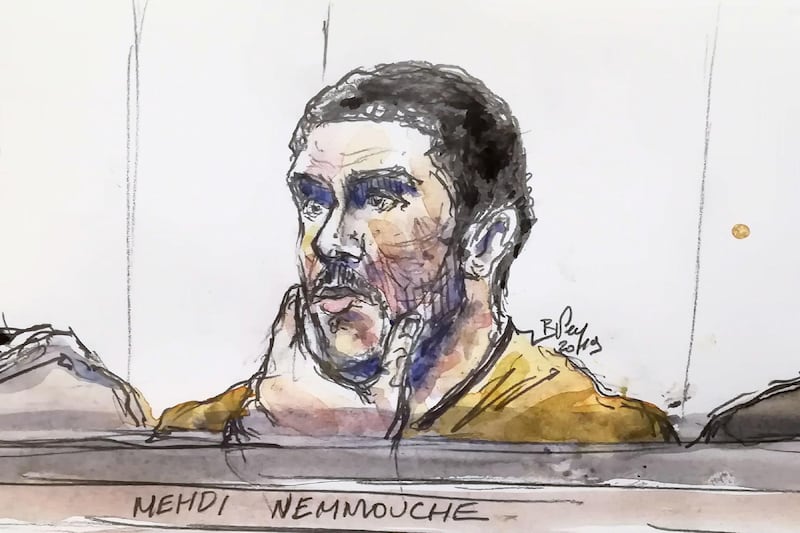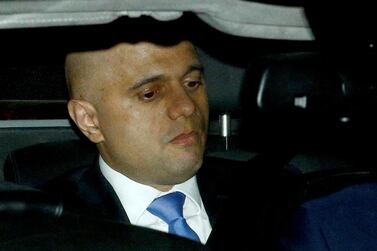A French extremist who shot dead four people at a Jewish museum in the first attack on European soil by a returning foreign fighter from Syria has been jailed for life.
Mehdi Nemmouche killed four people in less than 90 seconds with a handgun and a Kalashnikov rifle in the Belgian capital of Brussels in May 2014.
Prosecutors urged a jury – which decided the sentence – to issue a harsh punishment as a deterrent to other potential attackers after Nemmouche, 33, was convicted last week of “terrorist murder”.
Prosecutor Yves Moreau told the jury: “If you say that in Belgium one can be a terrorist without being punished very severely, then we must not be surprised to see people arrive in this country with bombs or assault rifles in their suitcases.”
Mr Moreau described the murderer as a “coward” who shot people from behind and killed because it gave him pleasure.
Before the jury retired to consider its sentence, which was issued in the early hours of Tuesday, Nemmouche, 33, had smirked and told the Brussels criminal court that "life goes on".
Nemmouche shot dead his victims with “surgical precision”, the Brussels court had heard. His victims included an Israeli couple, Miriam and Emmanuel Riva, who had two daughters, aged 15 and 16.
Nemmouche claimed the couple were agents of Israeli intelligence, Mossad, who had been hunted down and killed by someone else.
He denied the shootings and said he had been "trapped" but gave no other explanation at his trial. He was arrested six days after the shooting in the French city of Marseille with the two guns.
A lawyer for the murdered couple said the sentence was "fair and proportionate".
Prosecutors say the attack was the first carried out in Europe by a person returning after fighting in Syria but has been followed by others in France, the UK and Belgium as governments scramble to confront the threat.
“Revelations about the involvement of returning European citizens in attacks … have heightened the sense of alarm,” according to 2018 report by the European parliamentary research service.
Up to 4,300 foreign fighters from the EU – mostly from Belgium, France, Germany and the UK – are suspected to have travelled abroad, according to 2016 report cited by the EU parliament. Some 30 per cent had returned, the research found.
“Where foreign fighters end up, how much they have been radicalised, and the collective ability to track them … will be key determinants of the threat going forward,” said Russell Travers, director of the US national counterterrorism centre, last week.
Belgium and France, in particular, fear the defeat of groups like the Islamic State in Syria will send more angry young men homewards.
During his time in Syria, Nemmouche is accused of acting as the jailer of four French journalists taken hostage in Aleppo in 2013.
Two of the journalists who travelled to the court to give evidence both said they had "no doubt" it was him. He is due to go on trial in France over the hostages at a later date.
Nacer Bendrer, who was found guilty of being the co-author of the attack for supplying the weapons used by Nemmouche in the museum attack, was jailed for 15 years.
The investigation showed that the two men had dozens of telephone conversations in April 2014, when Nemmouche was preparing for the killings.
Bendrer, who is also French, said he was ashamed that he had ever met Nemmouche, saying "he's not even a man, he's a monster".
The pair, who have 15 days to lodge an appeal, will both serve their sentences in France.







